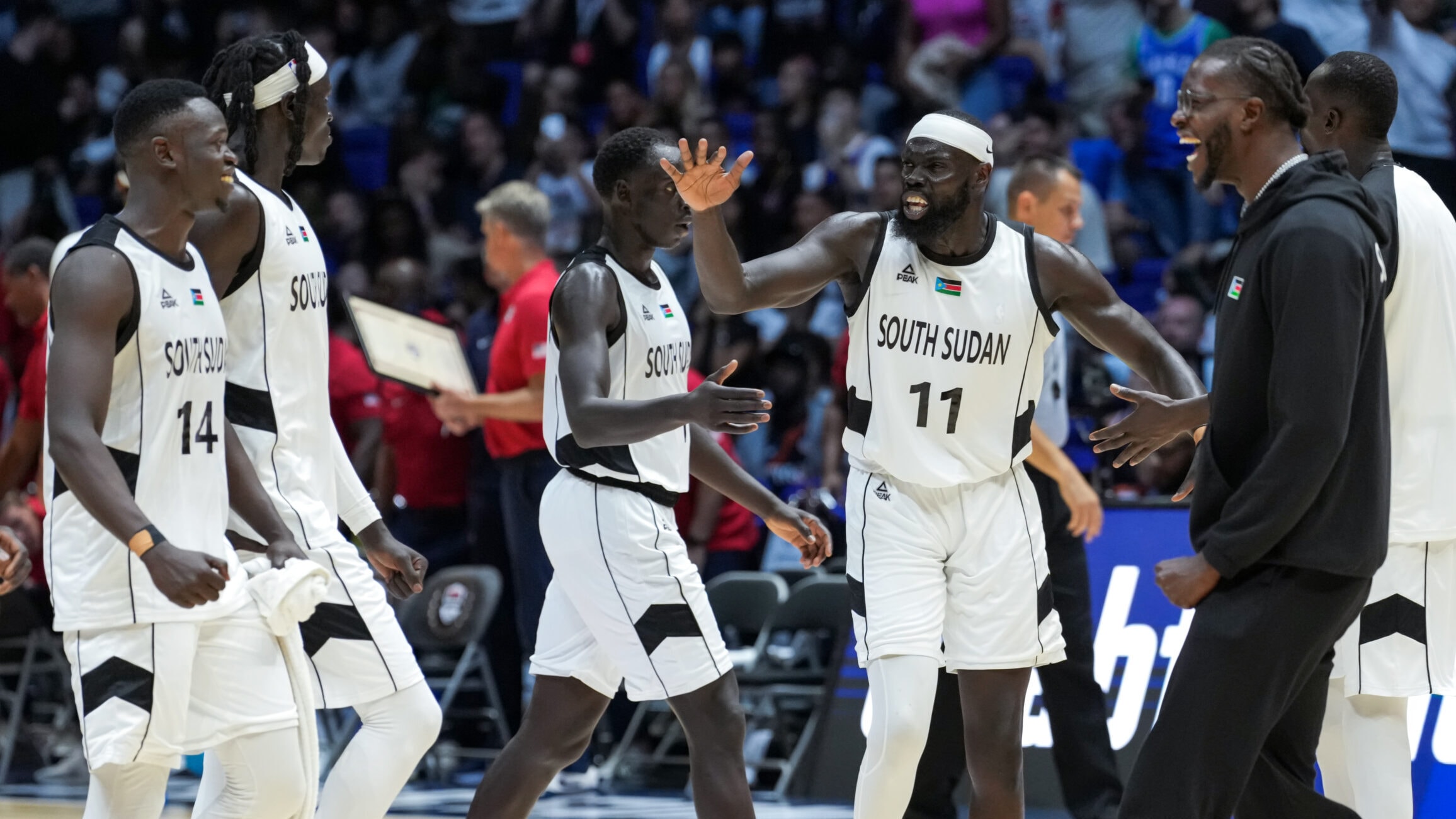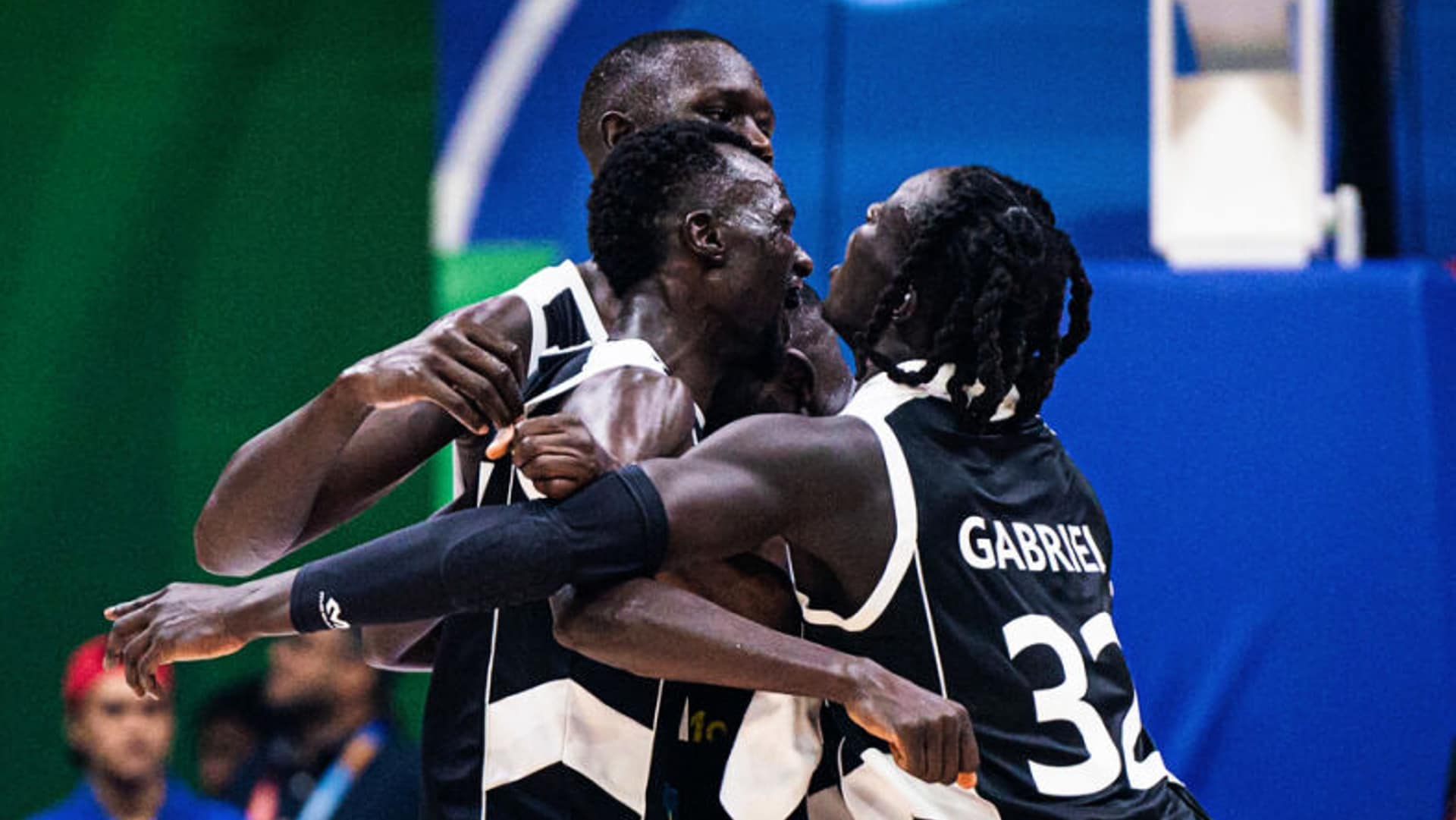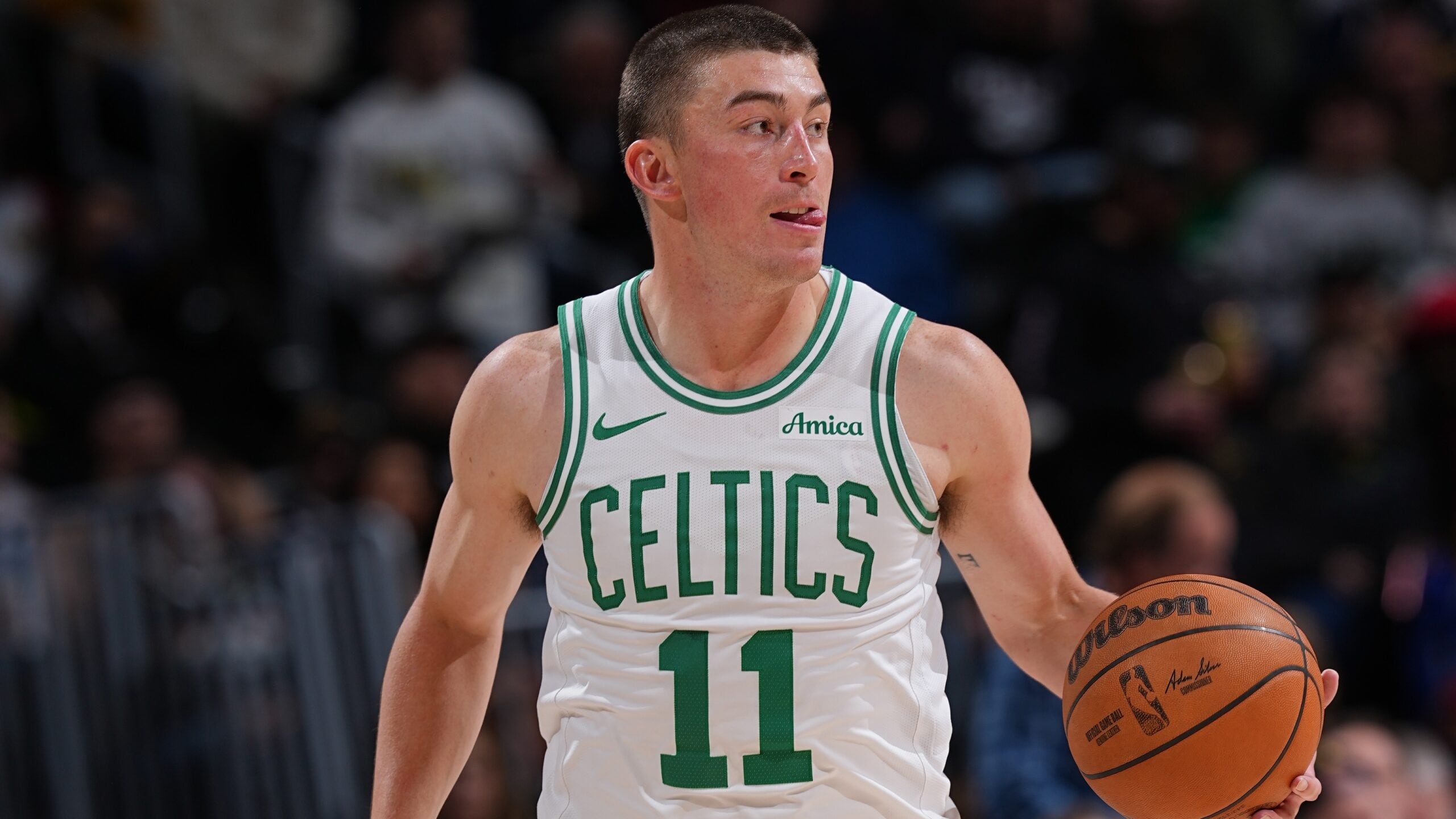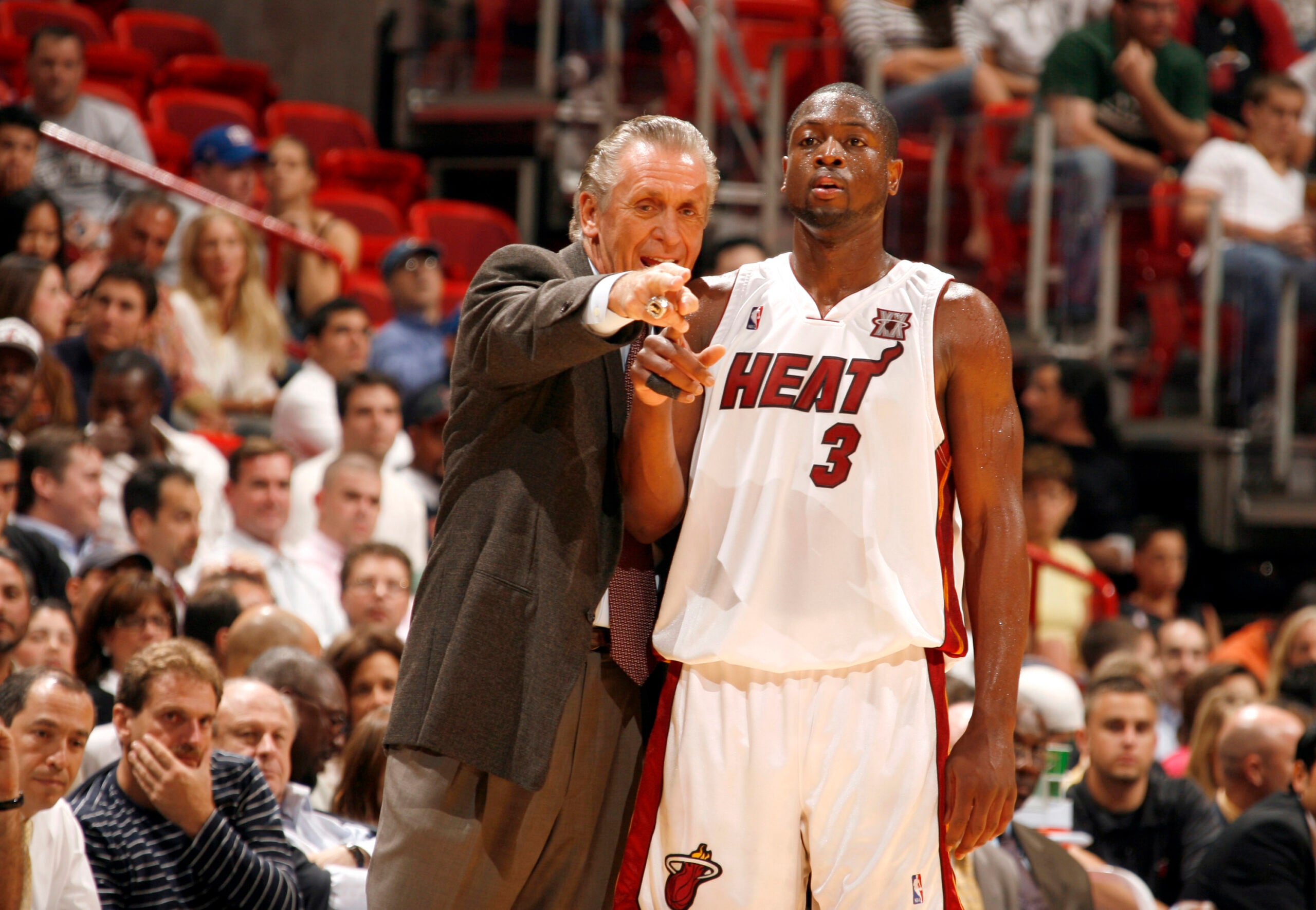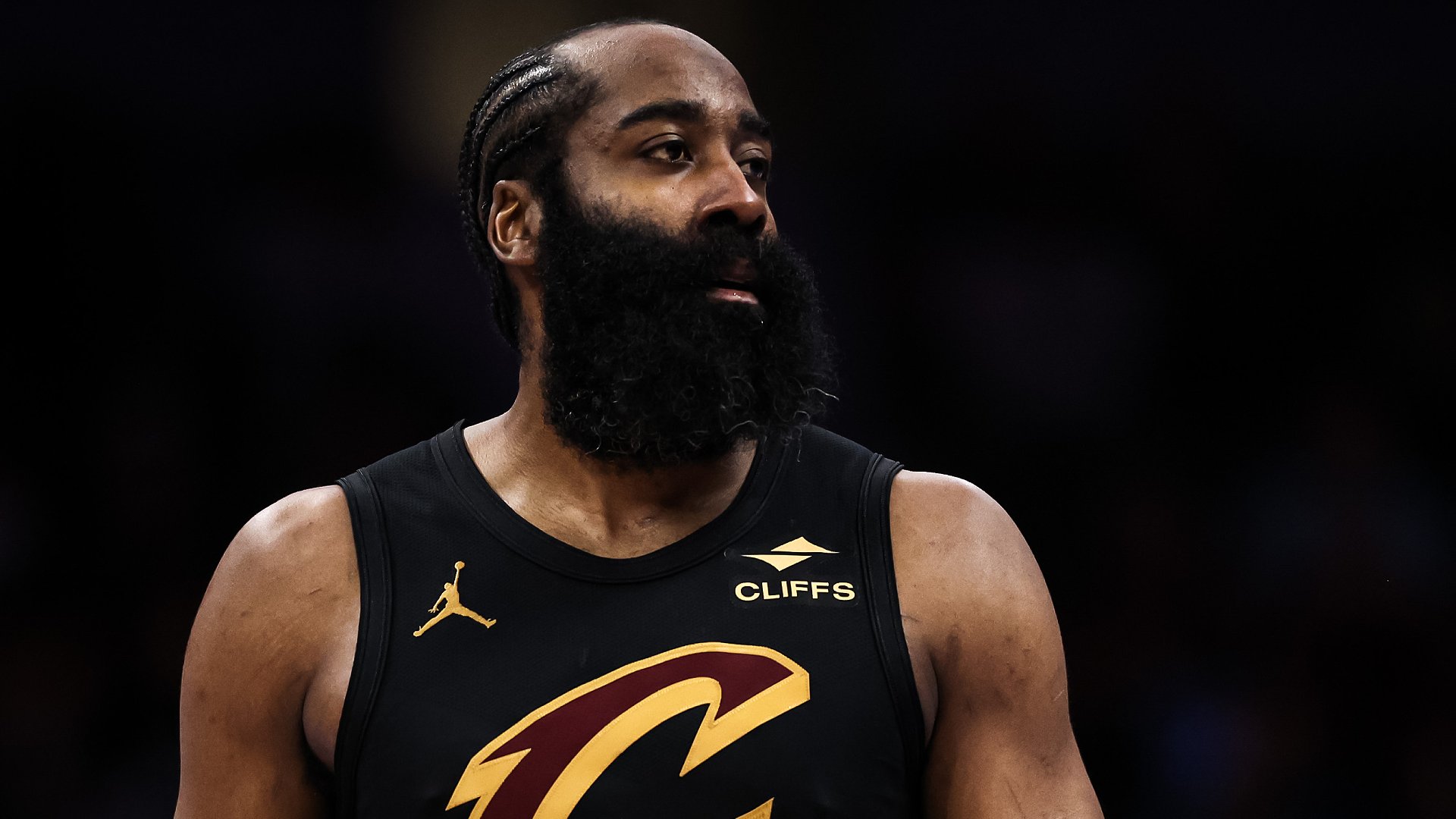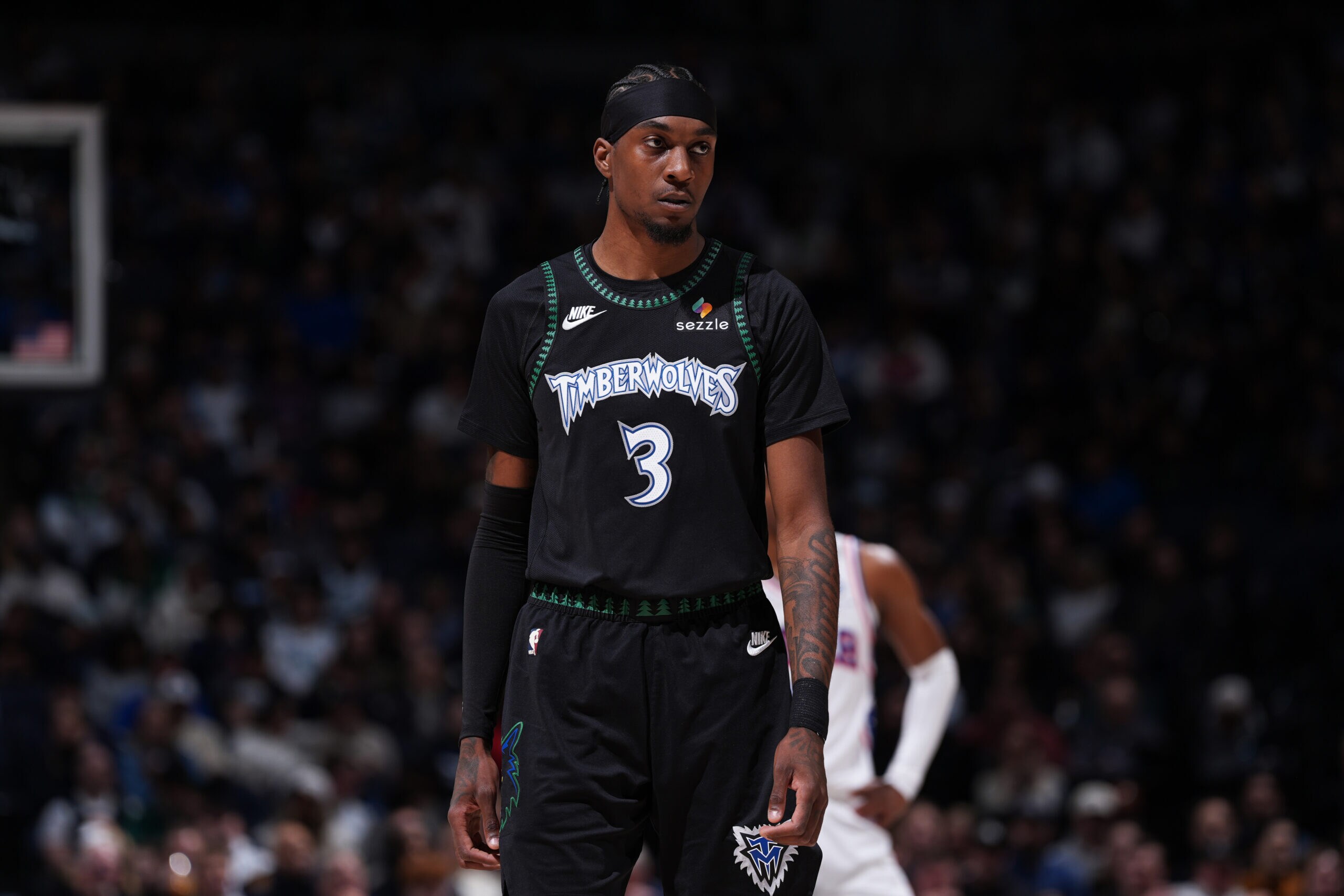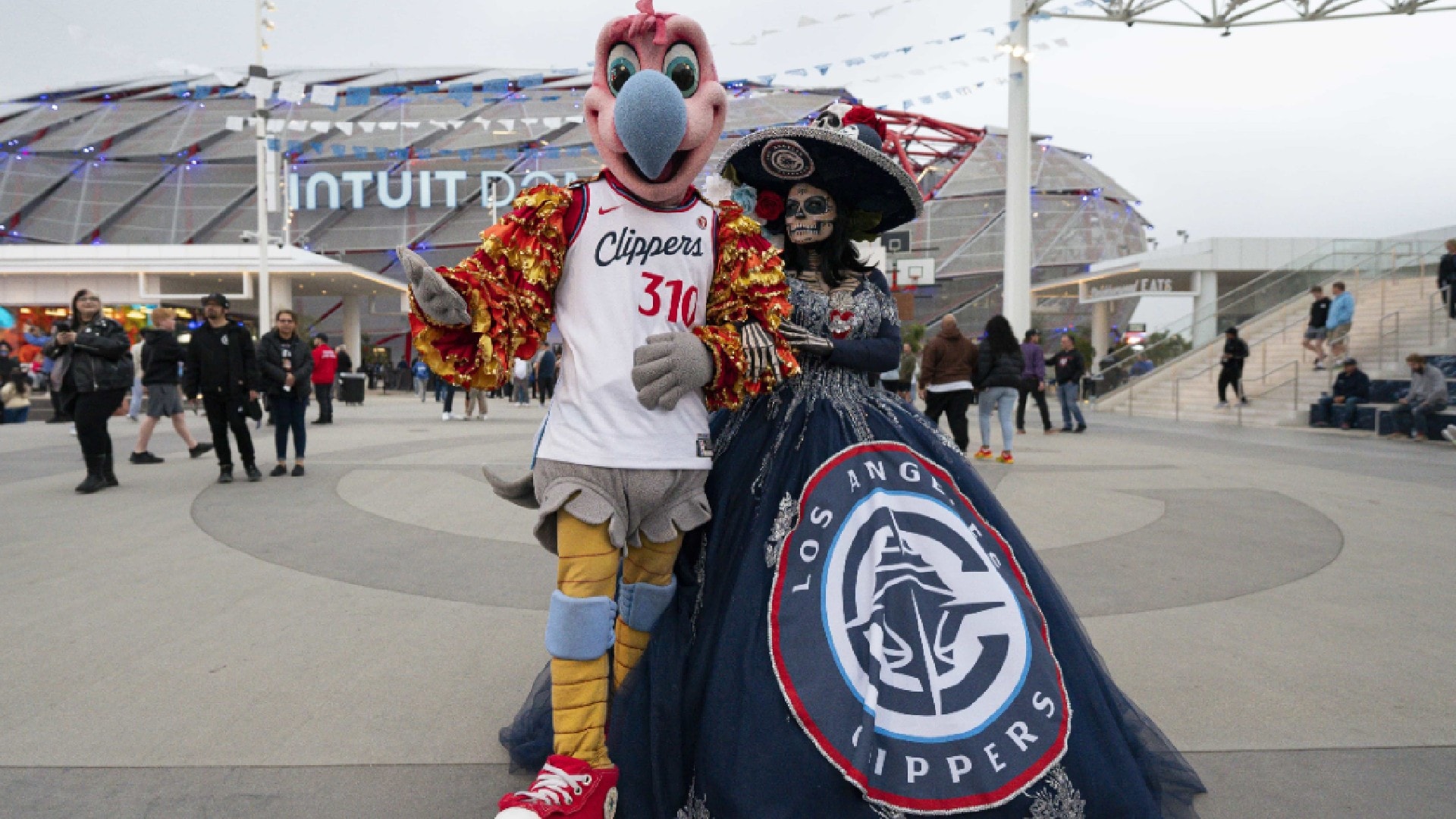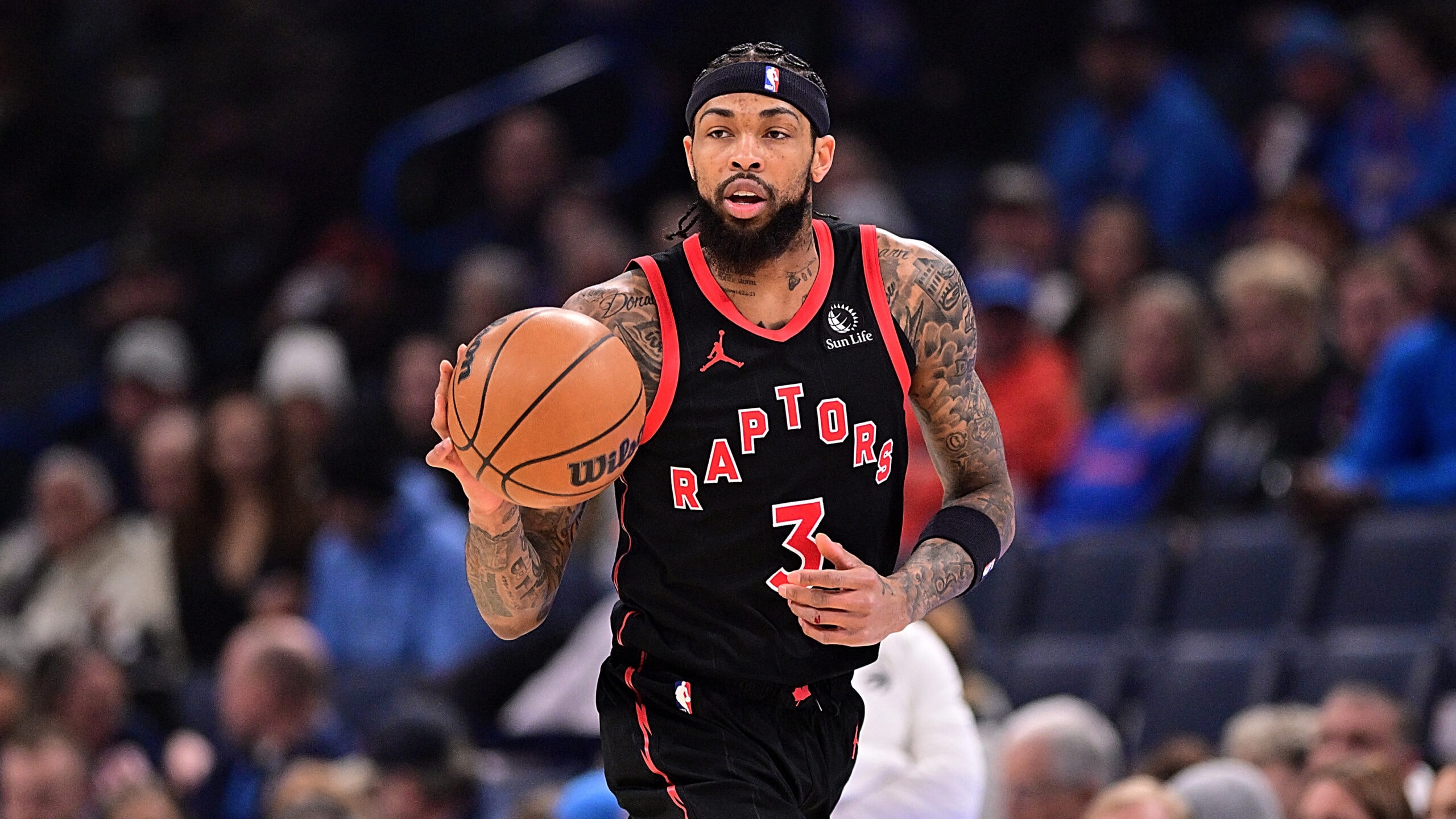
South Sudan’s players with NBA experience — such as Carik Jones (left) and Wenyen Gabriel — have fueled its run to the 2024 Olympics.
• Download the NBA App
• 2024 Olympics: Complete coverage
LILLE, France — So you want to know how South Sudan arrived here, at the 2024 Olympics, a dream for thousands of athletes worldwide and once just a fantasy for 12 in particular?
Let’s start with commercial flights, sitting in economy coach for hours and hours, with stops in between to change planes. Which, for these tall basketball players, is like wearing sneakers two sizes too small.
Before that, they prepared for competition in a cramped gym with sparse amenities, in a foreign country — because there are no indoor gyms in their homeland, just outdoor asphalt courts with rusty rims.
When they finally made their unlikely Olympic debut here days ago in the men’s basketball preliminaries, they stood at attention before their game with Puerto Rico and heard … the wrong anthem played.
“I told our players in the huddle that that was unbelievable,” said their coach, Royal Ivey. “And I also told them, guess what? This is life. We have been through bigger hardships, deeper disrespect. Let’s lock in.”
Before they beat Puerto Rico — which has a good Olympic history as an island country that once beat Team USA — these 12 players conquered so much, much, more.
Bright Stars 🇸🇸 make history! 🤩 South Sudan wins their first game at their first Olympic appearance. This is what it means to South Sudan and Africa 🥹! #SouthSudan #HistoryMade #BrightStars #NBANigeria pic.twitter.com/2OTeVoSm1F
— NBA Nigeria (@NBANigeria) July 28, 2024
They are South Sudan, an East African nation created by conflict and internal strife, represented by a majority of players who are refugees from that strife, bankrolled by a devoted son on a budget and more importantly, a vision. It is the youngest in the world after gaining independence from Sudan in 2011. LeBron James, Stephen Curry and Kevin Durant’s respective NBA careers are older than the country.
“We are a Hollywood story,” said Ivey, who thought for a minute, then corrected himself:
“Better than one.”
South Sudan embodies the Olympic spirit, more than any team in the men’s tournament, perhaps more than any country in the Games: easy to root for, hard to believe.
All because one former NBA player fled Sudan as a child, but ultimately came back … to give back.
A love for his people …
Luol Deng was born in Sudan, in the territory that is now South Sudan, into the Dinka tribe. His father moved the family to Egypt to escape the Second Sudanese Civil War when Luol was in grade school. There, they met Manute Bol, another Dinka, who mentored Deng and his brother.
His family moved to London, then to New Jersey for high school once Luol, 14, showed basketball promise. The rest was history: He played 15 years in the NBA, a two-time All-Star and respected two-way player, most famously with the Chicago Bulls, before retiring.
Deng started a foundation to support grassroots players from his homeland. That and Basketball Without Borders and NBA Africa helped rouse awareness and fund camps. Once interest in basketball grew in South Sudan, a movement began.
Players from South Sudan started trickling into major U.S. colleges (Khaman Maluach, just 17, will be a budding star at Duke), the NBA (Wenyen Gabriel) and professional leagues in Europe and elsewhere (including Nuni Omot on the fledgling Basketball Africa League).
The next step: A national team
He was elected president of the South Sudan basketball federation in 2019 (and currently serves as an assistant coach) and immediately addressed the most critical need: funding. Funding, that came out of his wallet.
“This is bigger than me,” Deng said. “I wanted to help grow the game in our country.”
Ivey said: “Just think about paying for gyms, paying for hotels, paying for plane tickets. That’s on him.”
The second need was a coach. Ivey is from Harlem, and his path is almost as unlikely as South Sudan’s. He attended the same New Jersey high school as Deng, then played at the same college (Texas) as Durant. Both are fond of him.
Oklahoma City Thunder president Sam Presti also respected Ivey, and gave him a shot at coaching in the organization once Ivey finished a journeyman NBA career. Ivey is now an assistant coach with the Rockets.
The third-most critical need? Convincing players with dual citizenship to play for South Sudan. Deng himself repped England in 2012 only because South Sudan, barely a year old as a country at the time, had no team.
“Almost everyone came aboard for the pride for their country,” Ivey said. “These guys wanted to hear their anthem.”
Which made it sting a bit more when they didn’t right before the Puerto Rico game. But, again, this team had already gone through the fire.
Its training camp was in Rwanda in a single gym. By comparison, every NBA team and most national teams practice in a facility with multiple courts.
“You get creative,” Ivey said, “and use your mind. You have to make groups. We had one group lifting weights and two groups on each end of the one court. We kept it going for five days, then I had to cut guys. Time was of the essence but we got it done.”
And the reception in Rwanda?
“Africa loves us,” Ivey said. “They support us. They’re rolling with us.”
The team qualified for the Paris Games by finishing higher than any African nation last year at the World Cup. It was a turning point, elevating over Nigeria and others on the continent, which have never produced an Olympic medal-winning basketball team.
Maybe that will change in the future because South Sudan has a high ceiling and its players are reaching for the chandelier.
Small country, giant steps
Once players came together — players with the same roots and stories and scars from a war-torn country — it was like a family reunion.
“These guys are brothers,” said Ivey. “We preach togetherness. They play cards together, eat together, dominoes together. It’s communal. They love each other. When guys are doing something wrong they hold each other accountable. That’s what real family is.”
After breaking camp in Rwanda, South Sudan crisscrossed the globe for exhibition games in Spain and then London. But there was no plush private jet for this team.
“Giving up the exit row to my seven footers was about a willing sacrifice,” he said. “That’s the grind that people don’t talk about. They don’t see that, us getting delayed seven hours while in Chad.”
It was all worth it once South Sudan caused an international basketball stir by nearly pulling off an upset over Team USA, losing by only a point after missing two shots at the buzzer. Yes, it was just an exhibition, but it showed the grit, determination and lack of fear by this newcomer country.
“Gave us a lot of confidence,” Gabriel said. “Everybody doubted us, even the point spread. It brought our team together. After going toe to toe with the US, we knew we could go out and make a name for ourselves against anyone.”
Even better was the impression they made back home, in a country that initially struggled with its independence amid civil war from 2013-20.
“It means everything,” Gabriel said. “It’s a unifying moment. We’re all united through basketball. This is proof of what sports can do for our country. I hope we continue to invest in our country and show the rest of the world what sports can do for people.”
HISTORY MADE!!! 🤩
🇸🇸 Congratulations to South Sudan, representing Africa on the world’s biggest stage! pic.twitter.com/ZyuQwpyWS0— Basketball Africa League (@theBAL) July 28, 2024
Next up? A rematch with Team USA on Wednesday. South Sudan, comprised of quick and athletic players, is trying to play into next week’s elimination round in Paris, which would be a massive accomplishment
“Incredible,” is how USA coach Steve Kerr described it, “given the strife in that region. To build a basketball federation amidst the war, and then for Royal and his staff to put together a team that plays modern basketball — stretching the floor, shooting 3s, attacking the rim.
“The speed in which they play, I’m glad we played them already to remind us how good they are and what we have to prepare for.”
South Sudan is most looking forward to this, not only for the competition and the chance to make history but to hear the correct anthem before tipoff.
“We all make mistakes,” Ivey said. “But people will know about South Sudan soon enough, if they haven’t already.”
* * *
Shaun Powell has covered the NBA for more than 25 years. You can e-mail him here, find his archive here and follow him on X.
The views on this page do not necessarily reflect the views of the NBA, its clubs or Warner Bros. Discovery.

